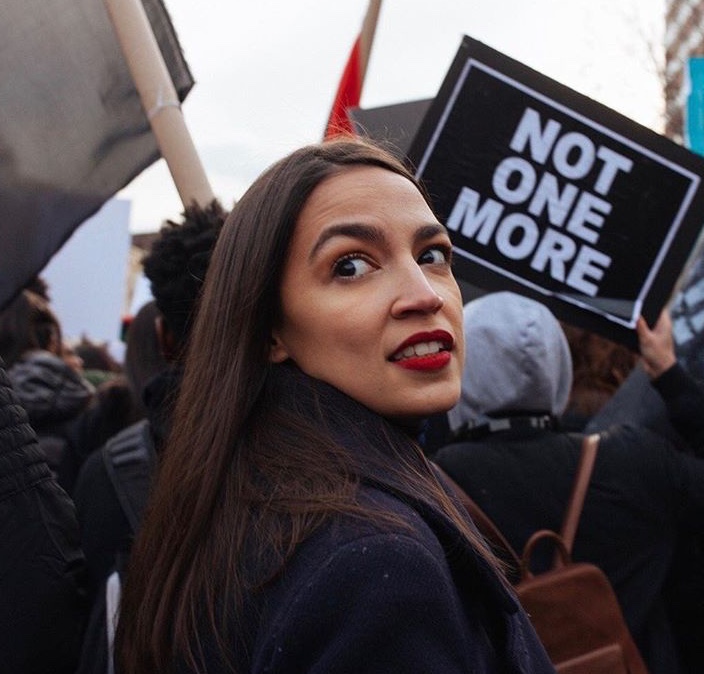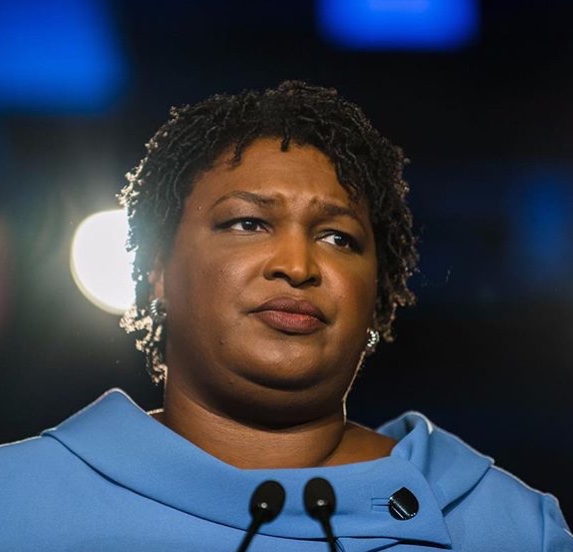100+ WOMEN PROJECTED TO WIN SEATS IN CONGRESS

Progressive Democrat Ilhan Omar of Minnesota is the first Somali-American Congresswoman, and one of two of the first Muslim Congresswomen. Alexandria Ocasio-Cortez, also a progressive Democrat, will be the U.S. Representative for New York’s 14th district, and the youngest woman to be elected to Congress at 29.
Words by Cristina Cala. Images courtesy of New York Magazine, Stacey Abrams and Broadly.
More women are headed to the House than at any other time in history.
Democrats won the House of Representatives in Tuesday’s midterm election, and a record 257 women candidates on the Congressional ballot secured their place in history. By 2:45 a.m. Wednesday, 95 of those largely Democratic women had officially snagged their seats in the 116th Congress. With more women in positions to legislate on issues affecting women, POC, LGBTQ+ and other marginalized constituents (or at least block harmful conservative legislation), there’s hope we’ll be represented by people who believe in humanity and democracy, and actually know how the female reproductive system works.
Counting undecided races, a record-breaking 100+ women are projected to win seats in Congress, with 18 races to go. The number of House seats is 435, so women still make up the minority, but a jump from 84—the old House record for seats held by women—to over 100 women bumps the representation from 19 percent to what’s likely to be upwards of 23 percent.
One of the key uncalled races is Democratic challenger Stacey Abrams’ high-profile bid to beat out Republican Sec. of State Brian Kemp in Georgia’s race for governor. In an iconic move at 2 a.m. Wednesday, Abrams announced she would not concede until “every vote gets counted.” With 99 percent of Midterm poll results reported but thousands of early, absentee and provisional ballots still uncounted, Abrams’ power move is more than symbolic. As Secretary of State, Kemp is in charge of elections, and in late August, a predominantly black county disclosed plans to shutter around 75 percent of its polling places, citing inaccessibility to voters with disabilities. While both gubernatorial candidates publicly opposed the proposal, Kemp’s role will oversee ballot counting in a runoff.
Upsets of the night included Tallahassee Mayor Andrew Gillum’s loss in Florida’s gubernatorial race and Beto O’Rourke’s loss in Texas. O’Rourke, a U.S. Representative in Texas’ 16th district, challenged Ted Cruz, incumbent for the state’s Senate seat. A disappointing breakdown of race by gender showed that white women did it again. (It = fucked up.) In numbers worse than the similar twilight zone of white women who voted for Trump in 2016 (47 to 52 percent depending on your source), 59 percent of white women voted for Cruz. Ninety-five percent of black women voted for O’Rourke.
While the number may be higher because Texas is a red state, social media rightfully erupted with commentary that black women again carry the weight of supporting Democratic candidates. The two data points together (white women for Cruz vs. black women for O’Rourke) require serious reconciling by white women, including and especially those who support Democratic candidates. Talk to your aunts. Convert 10 friends. Start a group thread. Or join Why Women’s #FeministBookClub, launching this week.
As for the symbolism of Abrams’ fight to make every vote and voice count—in a political institution where women represent a fraction of the legislators who make decisions that affect us—refusing to back down is bold, empowering and radical.
We have more work to do. While the wave wasn’t as blue as anticipated, the 2018 Midterms has produced a handful of history makers to celebrate.
Youngest Woman Elected
Alexandria Ocasio-Cortez (N.Y.)
First Muslim Women Elected
Rashida Tlaib (Mich.) and Ilhan Omar (Minn.)
First Native American Women Elected
Sharice Davids (Kan.) and Deb Haaland (N.M.)
First Black Woman Elected from Mass.
Ayanna Pressley
First Latina Women Elected from Texas
Veronica Escobar and Sylvia Garcia
First Black Woman Elected from Conn.
Jahana Hayes
Editor, The Why Women Project








